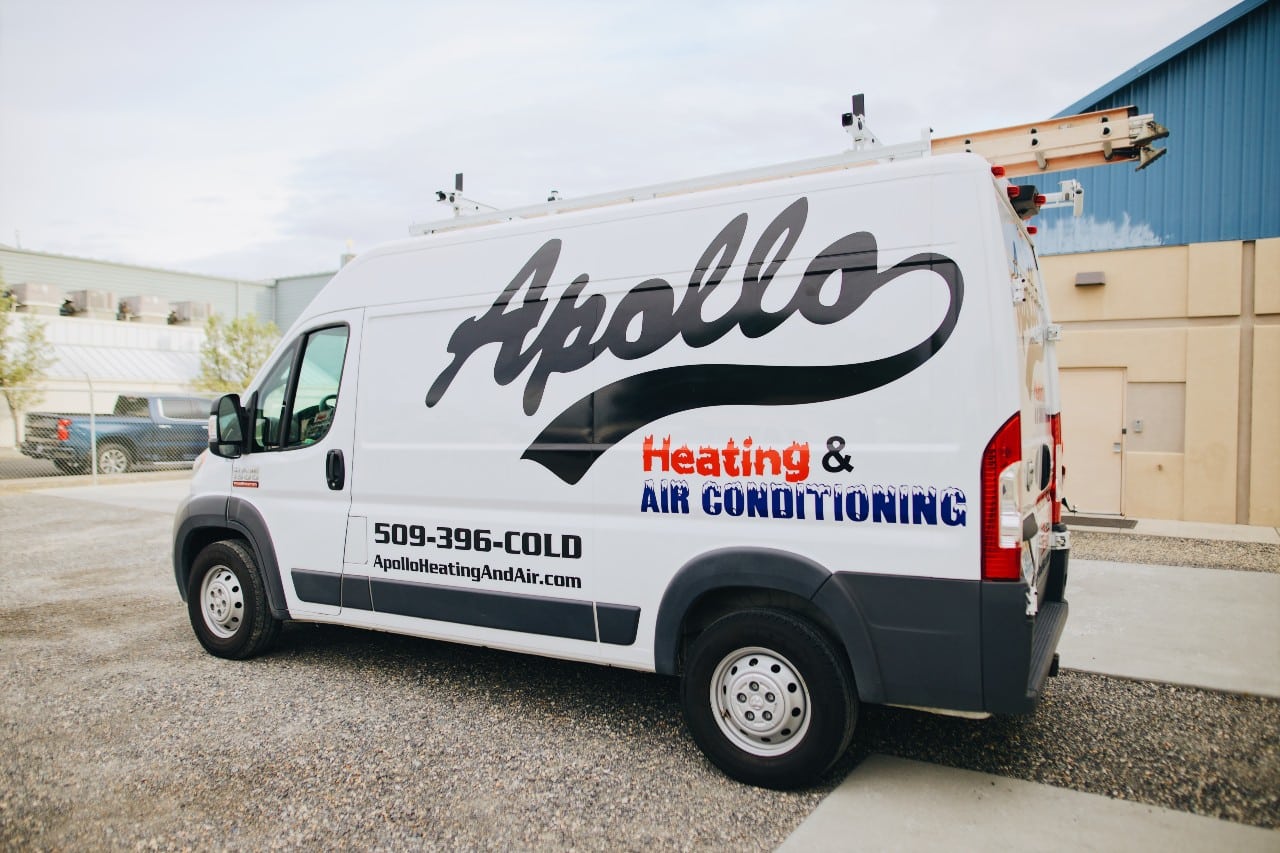Your heating and cooling system is essential to your family’s comfort in your home. An HVAC (heating, ventilation, and air conditioning) system regulates the temperature throughout different seasons and weather phenomena while keeping your home’s humidity levels in an ideal range. However, heating and cooling systems are also a homeowner’s most considerable expense, and selecting one is tricky. This article will help you learn everything you need about central air conditioning and ductless mini-split systems, and which is suitable for your home!
What is a Ductless Mini Split System?
A ductless mini-split system is a type of HVAC that can heat or cool your home or room without utilizing ductwork. Mini-splits comprise two main components: an outdoor compressor/condenser unit and an indoor air handling unit. The indoor units are mounted on walls or ceilings and are connected to the exterior unit by a refrigerant line. These units can offer a versatile and efficient heating and cooling solution for homes and other buildings.
Benefits of a Ductless Mini Split System
Ductless mini-split systems have a range of benefits. Here are some of the best reasons to invest in a mini-split system.
1. Flexible Zoning
Unlike ducted systems, mini splits do not have to push the same temperature air to each area of your home. You can have separate indoor units in each room or space, allowing you to control the temperature in each area individually. This will enable you to create individual temperature zones, saving energy and money on utility bills. It also helps each family member feel more comfortable in their room and desired temperature.
2. Cost Effective
Ductless mini splits might be more expensive to install or replace than traditional HVAC units. However, they are cheaper to operate. Their energy efficiency and zoning capabilities mean their cost of use is lower, saving you more money in the long run!
3. Energy Efficiency
Inverter technology allows mini-split systems to adjust the compressor’s speed to match your heating or cooling needs. This innovation makes them more energy efficient than traditional HVAC systems, which waste more energy pushing air throughout the home.
4. Simple Installation
Installing a ductless mini split is far simpler than a central air system. You must drill a small hole to connect the refrigerant line and mount the indoor unit on the wall or ceiling. An exterior unit must also be installed. This is a short and inexpensive process compared to installing ductwork throughout the house.
5. Quieter Operation
Ductless systems are far quieter than their ducted counterparts. Their indoor units are smaller and operate with less noise. You will never hear ductwork cracking, popping, or thumping as it expands and contracts around your house.
6.Space Saving
Mini-split systems are called “mini” because they are smaller than traditional central air systems. These units are ideal for apartments, smaller homes, or oddly shaped spaces. You don’t have to dedicate a separate room to your furnace or traditional unit; you can save space by mounting a mini split on the wall or ceiling.
7. No Need for Existing Ductwork
Installing a ductless mini split is perfect for older homes or spaces without existing ductwork. Ductwork is time-consuming and expensive to install because you often have to go through walls or ceilings, making it a tricky undertaking. A mini-split is ideal for these spaces or new additions, basements, or other areas without ductwork.
Drawbacks of a Ductless Mini Split System
Although ductless systems have many benefits, there are a few potential drawbacks to consider before installing these units.
1. High Upfront Cost
If you want to replace your central air, you will find that transitioning to a mini-split has a high upfront cost. The initial investment in a ductless mini-split system is higher than in a traditional HVAC unit if you don’t have to install ductwork.
2. Unappealing Aesthetic
The indoor component of your mini-split must be mounted high on a wall or the ceiling. This can be unappealing for some homeowners, as it calls attention to the AC unit rather than hiding it in an attic or closet, potentially altering the space’s aesthetic.
3. Limited Coverage and Capacity
Although you can use separate units for zoning, each mini-split has a limited capacity for heating or cooling. They are unsuitable for larger homes or big open spaces requiring centralized heating or cooling.
4. Purchasing a Dual System
Some mini-split systems are designed for cooling only. Unfortunately, these are usually the less expensive options. Therefore, a mini-split system might not suit homes with heating requirements during the winter season.
What is a Central Air Conditioning System?
A central air conditioning system is a type of HVAC that uses one unit to cool an entire building. The exterior unit contains a compressor, condenser coil, and fan, usually outside the home. After treating the air, it uses a series of ducts running through the inside of the building to distribute cooled air. These systems are controlled by a thermostat, which allows you to set the temperature of the entire building. Recently, innovations in thermostat technology have introduced innovative features where homeowners can remotely alter the temperatures and functionality of their systems.
Advantages of a Central Air Conditioning System
Using a central air conditioning system to cool your home has several advantages. Read on to learn why a central AC unit is suitable for you!
1. Consistent Temperature
Central air systems are designed to cool your entire building to one temperature. With properly planned and installed ductwork, they can maintain a constant temperature throughout your space. You don’t have to walk from a cold room to a warm room or experience drafts; your home will be comfortable throughout!
2. More Efficient Than Window Units
Although less efficient than mini-splits, central air conditioning systems are generally more energy efficient than window units or portable air conditioning options. They use less energy to cool larger spaces and can be integrated with other systems and smart technology to save energy and reduce your bills.
3. Unbeatably Convenient
Central Air’s primary advantage is its singular unit design. You don’t need to maintain multiple units to cool your home. It simplifies changing the temperature and any required maintenance on your system.
4. Hidden for Aesthetics
Central air conditioning systems are typically outdoors, with other components in the attic or hidden closets. Usually, only vents are visible in each room. This streamlined design can be more aesthetically pleasing than different types of HVAC.
5. Investment in Property Value
Installing central air can increase your home’s value. Not only is it aesthetically appealing, but they are reliable systems lasting for over a decade. If you’re considering putting your home on the market, this can be a selling point for potential buyers.
6. Smart Home Features
In the past decade, central air conditioning systems have evolved significantly. Many units now incorporate smart technologies that smartphones or tablets can control. Homeowners can set a schedule that turns the air on, off, up, or down, depending on when they will be in and out of the house. This can help save energy and money on your next bill!
7. Cool Larger Spaces
Central air has a significant advantage over other types of HVAC for large spaces. They can cool an entire home or building to the same temperature more efficiently than mini-split systems.
8. Integration with Heating Systems
Central air conditioning systems can be integrated with existing heating systems. This compatibility allows you to control your home’s heating and cooling elements from one thermostat – or from your smartphone!
Disadvantages of a Central Air Conditioning System
While central air has many benefits, there are also some potential drawbacks to consider before committing to your purchase.
1. High Cost of Installation
Installing the first central air system in a home can be costly. You must hire a professional team to install the unit and any associated ductwork. If you want the ductwork to remain hidden, this could mean construction in your walls or ceiling. Additionally, you may have to upgrade your electrical system to support the new AC.
2. Maintenance Can Be Inconvenient 
Unlike multiple mini-splits, central air runs off of one single unit. This means you have no air conditioning anywhere in your home when that unit fails. In the heat of summer, this might constitute a major emergency! Central air systems require significant maintenance, so scheduling yearly checkups with a trusted technician is essential.
3. Not the Most Energy Efficient Option
Central air is more efficient than window units or portable air conditioners. However, it is less efficient than having several mini-splits. In its attempts to keep your home at the same temperature, it needlessly expends energy cooling rooms that are not in use. This can rack up your energy bill significantly!
4. Noisy Operation and Ductwork
Central air systems can be noisy when continuously operated. Their units use significant power, and the various ductwork around your home can pop and thump when different air temperature flows through it.
5. Multi-Story Distribution
It is a known fact that heat rises, causing the lower levels of a multi-story house to be cooler than the upper levels. Central air tries to heat your home to the same temperature throughout the building. However, this can be inefficient and impractical in multi-level homes, never cooling the top level to the desired temperature.
The Takeaway: How to Choose the Best HVAC System?
Overall, central air systems and mini-splits have significant advantages and disadvantages. Ultimately, a decision comes down to your home’s layout, needs, and budget. Remember to consider the size of the space you desire to cool and the size of the unit you want to purchase. Keep efficiency ratings like SEER and HSPF in mind, and consider not only upfront costs and installation but approximate monthly energy bills. You also want to factor in what features you need and what maintenance each system requires.
If you are still determining which system is best for your home, consult a trusted heating and cooling professional. An expert company such as Apollo Heating and Air can make personalized recommendations based on your space, needs, climate, and other factors. They can also assist you in selecting a high-quality system from a reputable brand and provide proper installation and regular maintenance schedules. 
How Apollo Heating and Air Conditioning Can Help
Are you searching for a heating and cooling solution for your home in the Tri-Cities, Washington, area? Apollo Heating and Air Conditioning are here to help! Our team of seasoned professionals works with homeowners across the region to determine the best solutions for their space, needs, and budget. Visit our website to browse our service offerings or to schedule an HVAC service or consultation. We look forward to helping you toward a more comfortable home!




